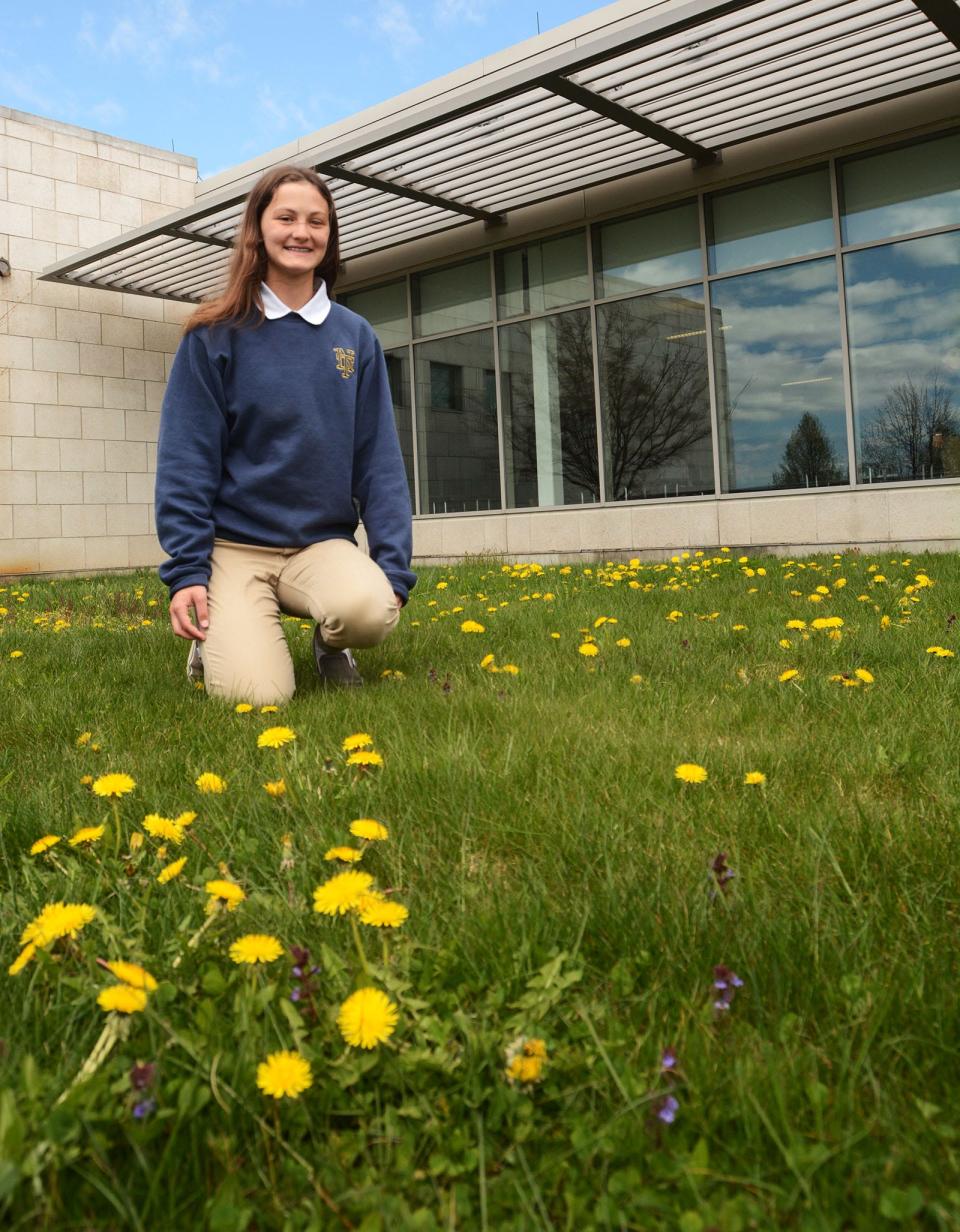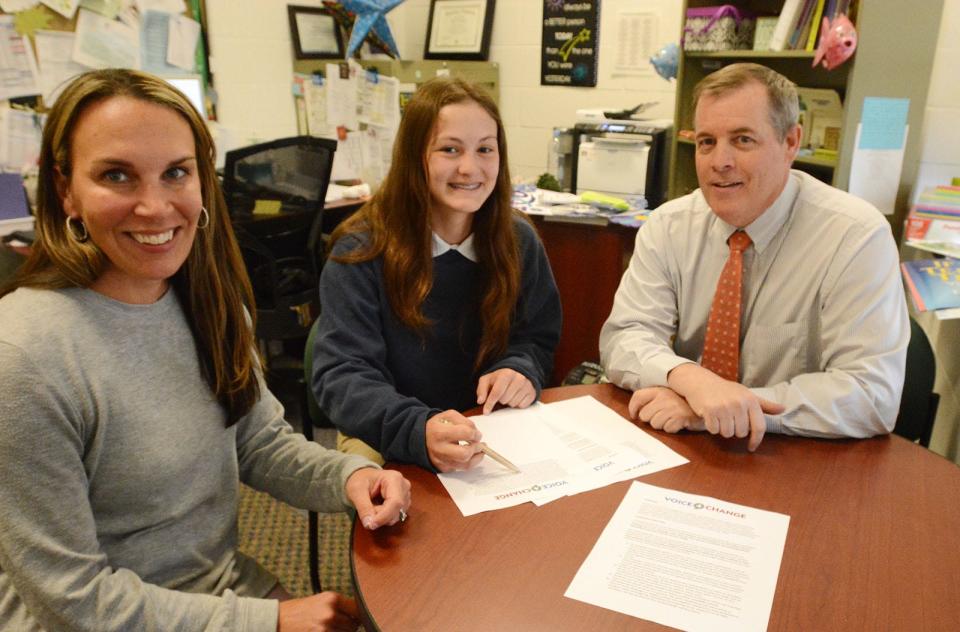These CT students chose how to spend ARPA money in their schools. What did they pick?
For Norwich Technical High School sophomore Morgan Cook, giving students a voice in what happens with their schools is important, and one recent state program did just that.
“A lot of times, students don’t feel that they have a voice; it’s just the staff and everyone running it,” Cook said. “Getting to know your voice is heard, getting to go against other people and compare ideas, it just makes you feel important and it prepares us for the real world.”
Last year, the Connecticut Department of Education announced the Voice4Change grant program, in which 80 Connecticut schools across 45 of 205 total districts participated.

It enabled students to submit plans on how to spend up to $20,000 in American Rescue Plan Elementary and Secondary School Emergency Relief on their schools. Cook's proposal was one of the 59 chosen and funded.
Norwich Rose Arts Festival: Norwich Rose Arts Festival returns for 2022. What did organizers overcome to get it back?
"It was a first-of-its-kind program," Connecticut Department of Education Communications Director Eric Scoville said. "We have other states copying the program."
A total of 201 plans were received by the state, and 150 were eligible based on state guidelines. On April 8, the state announced the 59 winning proposals, voted on by students. Scoville said the schools would have to administer those plans themselves.
What kinds of projects did CT fund?
The plans students developed focused on one or more of the five criteria determined by the state.
Scoville said 71% addressed social, emotional, and mental health, 52% addressed learning acceleration, academic renewal and student enrichment, 38% addressed building safe and healthy schools, 35% addressed family and community connections, and 17% addressed the strategic use of technology, staff development, and the digital divide.
Killingly Board of Education: Resignations, complaints, and an investigation: Killingly school board's troubling year
Cook’s winning plan, the Norwich Tech Community Comeback, will “build stronger school community relationships through events that engage students, school staff, families, and the wider community," as described by the state.
Specifically, Norwich Tech Principal Donald Concascia said the plan entails having carpentry students build new picnic tables, signage to promote positive messages to students, getting students involved in community service, and having guest speakers to talk about social and emotional health.

Concascia said sometimes, the students would propose overly ambitious plans, and he and social worker Jaime Miller would work with the students to make their plans more realistic. However, Conascia said Cook “put together a phenomenal package.”
Cook believes her plan is important, as she hopes it will help the school community “get involved and raise spirits, as COVID took away a lot of that.”
Mohegan Tribe: Mohegan Tribe saw repatriation from Dartmouth College. Why are the Occom papers important?
Concascia also said that students missed “a lot of the fun stuff” through the pandemic, from no dances, to social distancing and masks.
“All the pieces of school that fill your heart are gone,” Concascia said. “This program is giving us some funding that will allow us to reinvigorate schools as a well-rounded activity for kids.”
As for the entire Voice4Change program, Concascia said it was a good idea. He prefers letting individual schools decide what they need, rather than a top-down approach.
ARPA funds: Killingly has $1.8M worth of pandemic money to spend. Who decides where it goes?
“Our school doesn’t have the same needs as a school in Hartford or New Haven, or even Groton,” Concascia said.
Norwich Tech’s plan will be implemented in the fall. Cook is looking forward to more student activities returning through the program and being better than ever.
“I’m excited for everything in the future, not just next year,” Cook said.
Accepted proposals in Griswold, Plainfield, Colchester, Killingly, Putnam and Windham
Other area schools participated in the program. For Griswold High School, the winning plan, “Mental Health Is Important,” was submitted by Jakob Skipper. This program is focused on providing after school stress relief, and boosting student engagement.
Plainfield High School’s plan is to add more seating, enabling a longer lunch break. With a longer break, it’s expected that students will have more time to participate in clubs.
Greek food in CT: 'If you make good tzatziki, you can have the best gyros.' Eating Greek in Gales Ferry.
Students at Bacon Academy in Colchester voted to create an outdoor classroom. In Killingly, Ellis Tech students approved adding a greenhouse to campus.
Putnam High School is able to implement two separate programs. One is to provide translating ear buds for multilingual students and their families while in school, and the other allows for updating athletic equipment for sports and after school programming.
Windham High school students voted to improve their courtyard.
This article originally appeared on The Bulletin: Norwich, Griswold, Plainfield student proposals federally funded

